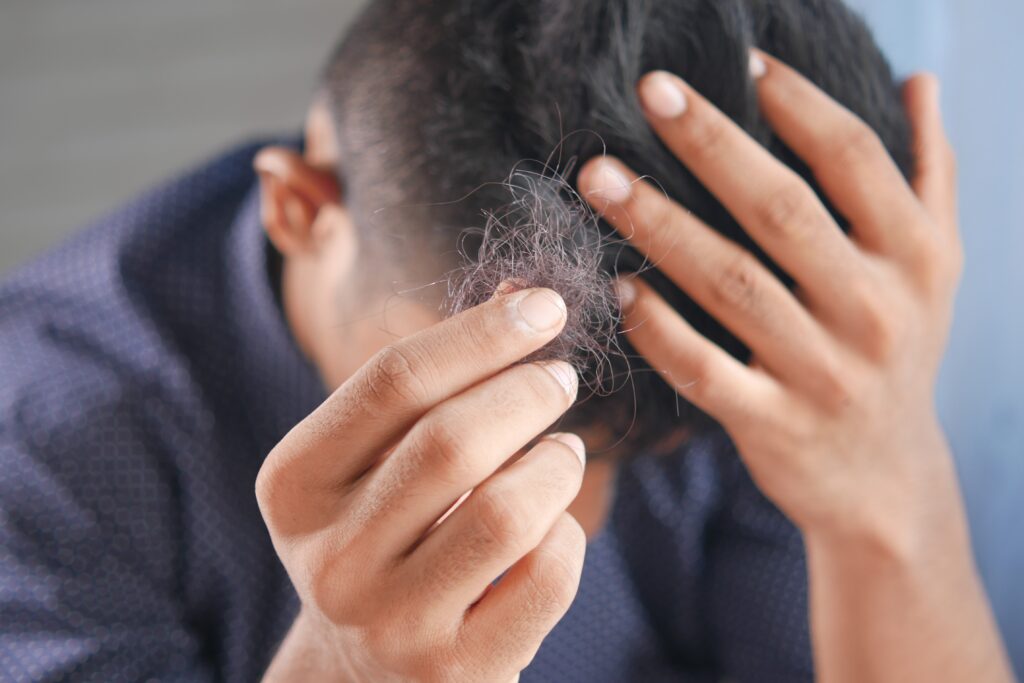Alopecia areata will eventually impact approximately 2% of the world’s population. Around 6.7 million sufferers are here in the United States. Suffering from hair loss can be overwhelming and frustrating. However, it is vital to recognize whether you are personally affected by alopecia areata or if there is another cause.
What Causes Alopecia Areata?
Alopecia areata is a type of autoimmune disease that results in hair loss for sufferers. This hair loss is a result of the immune system attacking hair follicles and causing the hairs to fall out. The amount of hair loss generally depends on the severity of the condition. In some cases, individuals may struggle to grow new hair in place of the hair that has fallen out. As a result, those with this condition can experience widespread bald patches or hair loss.
There are many instances where people who suffer from alopecia areata have co-existing autoimmune disorders. Some of the most common include:
- Multiple sclerosis (MS)
- Addison’s disease
- Rheumatoid arthritis
- Type 2 diabetes
- Atopic dermatitis
- Sjogren’s syndrome
- Systemic lupus erythematosus
- Graves’ disease
- Celiac disease
- Vitiligo
What Are the Risk Factors?
Many people who have alopecia areata experience symptoms suddenly and without any warning. There are also many cases where there are no clear triggers that cause hair loss. Some people may experience the loss of hair after suffering a significant illness, injury, or severe emotional episode.
Medical professionals believe that low vitamin D serum levels may increase a person’s risk of developing this disease. However, there is currently not enough research to make a definite link.
Can You Prevent Alopecia Areata?
There is currently no cure nor any preventable measures that you can take to stop hair loss before it occurs. There are some treatment options available that can help you regrow your hair after suffering an immune system attack.
Get Help for Your Hair Loss Now
If you believe your hair loss can be attributed to alopecia areata, contact our team at SkinSmart Dermatology. We will help to determine if this condition is the cause of your hair loss and what treatment options may work best to provide you with relief. Call
941-308-7546 now, or schedule an appointment online to get started.


